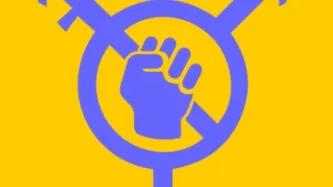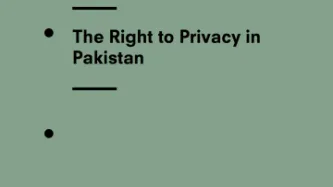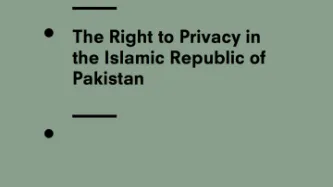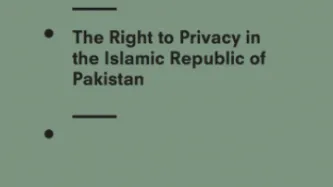Search
Content type: Case Study
Photo by Roger H. Goun
Chloe is an investigative journalist working for an international broadcast service; we will call the TV show she works for The Inquirer. She travels around the world to work with local journalists on uncovering stories that make the headlines: from human trafficking to drug cartels and government corruption. While her documentaries are watched by many and inspire change in the countries she works in, you would not know who Chloe is if we were to tell you her real name.…
Content type: Long Read
For International Women’s Day 2019, Privacy International looks at some of the key themes around the intersection of gender rights and the right to privacy and we review the work we and our partners have done on those topics.
When dealing with cases of non-consensual sharing of intimate images, often known as ‘revenge porn,’ or doxxing, where a person’s personal details are shared publicly, the link between privacy and online-gender-based violence is very clear. Privacy…
Content type: Long Read
The Privacy International Network is celebrating Data Privacy Week, where we’ll be talking about how trends in surveillance and data exploitation are increasingly affecting our right to privacy. Join the conversation on Twitter using #dataprivacyweek.
In the era of smart cities, the gap between the internet and the so-called physical world is closing. Gone are the days, when the internet was limited to your activities behind a desktop screen, when nobody knew you were a dog.
Today, the…
Content type: State of Privacy
Table of contents
Introduction
Right to Privacy
Data Protection
Identification Schemes
Policies and Sectoral Initiatives
Introduction
Acknowledgment
The State of Privacy in Pakistan is the result of an ongoing collaboration by Privacy International and the Digital Rights Foundation.
Between 2014-2016, Bytes for All contributed to previous versions of the 'Data Protection' sections of this briefing.
Key Privacy Facts
1. Constitutional privacy protections: Article 14(1) of…
Content type: Advocacy
In this submission, Privacy International provides the Committee with their observations to the written replies of the Pakistani government and with additional, up to date information to that contained in the brieing submitted to the Committee in advance of the adoption of the list of issues in 2016.
Content type: News & Analysis
20 June 2016
Privacy International joins DRF and A19 in reiterating our serious concerns about the proposed Prevention of Electronic Crimes Bill which is currently being discussed in the Senate in Pakistan. While we note that the Bill adopted by the National Assembly in April 2016 includes some improvements compared to the earlier version, the Bill as currently drafted introduces a series of new provisions that pose a grave risk to freedom of expression and privacy in Pakistan…
Content type: News & Analysis
Early on Wednesday morning the Prevention of Electronic Crimes Bill was approved by Pakistan’s National Assembly. The Bill, which is almost universally acknowledged as “controversial” had been criticised by opposition members, industry and civil society at numerous stages. Civil society organisations from around the world released two joint statements in April and December last year expressing their concerns. Despite the chorus of criticism, very little has changed in the Bill during its…
Content type: News & Analysis
Surveillance in digital spaces is the policing and monitoring of activity of those occupying these spaces. Surveillance affects free speech, privacy and behaviour of digital users. Feminism and a feminist approach to surveillance puts marginalised communities, those that are victims of class discrimination, racial and patriarchal structures, at the centre of discourse around privacy and surveillance.
Surveillance in Pakistan is often seen as an issue of national security. With the National…
Content type: News & Analysis
What do Honduras, Pakistan, and Switzerland have in common? They are all bound to respect and protect the right to privacy under Article 17 of the International Covenant on Civil and Political Rights. And in July 2017, they all also happened to be under the scrutiny of the UN Human Rights Committee, which found the countries’ human rights record wanting in many respects, including the scope of their surveillance legislation.
Intelligence sharing
Reviewing Pakistan, the Committee…
Content type: Advocacy
This stakeholder report is a submission by Privacy International (PI). PI is a human rights organisation that works to advance and promote the right to privacy and government surveillance around the world. Privacy International wishes to bring concerns about the protection and promotion of the right to privacy for consideration in Pakistan’s upcoming review at the 28th session of the Working Group on the Universal Periodic Review.
Content type: Report
This stakeholder report is a submission by Privacy International (PI). PI is a human rights organisation that works to advance and promote the right to privacy and ght surveillance around the world. Privacy International wishes to bring concerns about the protection and promotion of the right to privacy for consideration in Pakistan’s upcoming review at the 28th session of the Working Group on the Universal Periodic Review.









